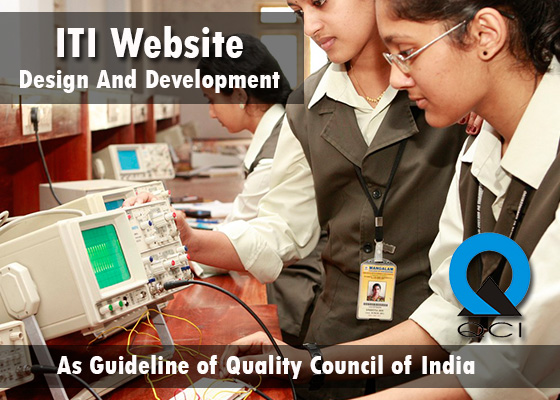MEV-002: Environmental Occupational Hazards By Dr. Sushmitha Baskar, Prof. Boyina Rupini
This course details on the various Environmental and Occupational Hazards. The course discusses on natural hazards and disasters. Natural disaster is an event like earthquake, floods, landslides that adversely affects the people either by damaging the property or through loss of life. Here we discussed geological hazards, where events like earthquake volcanic eruptions and landslides have been elaborated. Weather related hazards or coastal hazards have explained under meteorological hazards. The course also details on environmental hazards covering aspects of physical, chemical and biological hazards. Explosives, Flammable, radiation, heat & cold stern vibration, noise hazards have explained in physical hazards. How a chemical can be hazardous to humans and have detrimental health effects are explained in chemical hazards. Hazards caused by biological agents such as microorganisms can pose a threat to the health ofhumans. The course also discusses Occupational Hazards. It deals with hazards posed by specific occupations such as mining &construction, agriculture and allied sectors, hospital, and health centres and corporate sectors. Finally, the management of the hazards and the mitigation of the same has been explained.
Course layout
Week 1
Introduction to natural hazards and disasters
Impacts of natural hazards and disasters – Part 1
Impacts of natural hazards and disasters – Part 2
Earthquakes and Tsunamis
Week 2
Volcanoes
Floods
Droughts
Landslides
Week 3
Cyclones
Tornadoes and Thunderstorms
Mitigation of natural hazards and disasters
Disaster Management
Week 4
Physical hazards - Extreme temperature, Noise and Vibration
Physical hazards - Radiation (ionizing and non-ionising)
Chemical hazards - Flammable Chemical Material
Week 5
Chemical hazards - Corrosive Chemical Material
Chemical hazards - Corrosive Chemical Material
Chemical hazards - Chemical Toxins
Week 6
Biological hazards - Bacteria, Viruses, Fungi
Biological hazards - Plant and Plant Products
Biological hazards - Animal and Animal Products
Week 7
Occupational Health Hazards in Mining Industry
Occupational Health Hazards in Construction Industry
Occupational Hazards Associated with Agriculture and Allied Sectors – Physical and chemical hazards
Week 8
Occupational Hazards Associated with Agriculture and Allied Sectors - Zoonotic Diseases
Occupational Hazards Associated with Agriculture and Allied Sectors – Dust hazards and Ergonomic hazards
Agricultural respiratory hazards and diseases
Occupational Hazards Associated with Forestry
Week 9
Biological warfare/Bioterrorism
Hazards Faced by Healthcare Workers - Physical Hazards
Hazards Faced by Healthcare Workers - Biological Hazards
Week 10
Hazards Faced by Healthcare Workers - Chemical Hazards
Hazards from Healthcare waste and biomedical waste
Management of Hazardous Healthcare Waste
Week 11
Corporate and office hazards – Physical and Chemical hazards
Corporate and office hazards – Ergonomic and Psychological hazards
Corporate and office hazards – Diseases and Human Health
Week 12
Mitigation of Physical Hazards
Mitigation of Biological Hazards
Mitigation of Chemical Hazards
Books and references
Baskar, S., Baskar, R. 2009. Natural Disasters. Unicorn books, Pustak Mahal, India. 159p.
Bryant, E. 2005. Natural Hazards. 2nd Edition, Cambridge university press, 330p.
Burton, I., Kates, R.W. 1964. The perception of natural hazards in resource management, Natural Resources Journal 3, 412-41.
Burton, I., Kates, R.W., and White, G.F. 1978. The Environment as Hazard New York: Oxford University Press. Hewitt, K. and Burton, I.1971. The Hazardousness of a Place: A Regional Ecology of Damage Events, University of Toronto.
Keller, E.A. 2010. Environmental Geology, 9th Edition, Pearson publication, 624 p.
United Nations Disaster Relief Organization1991. Mitigating Natural Disasters: Phenomena, Effects and Options: A Manual for Policy makers and Planners. New York: United Nations.
Griffin, M. J. 1990. Handbook of human vibration. London: Elsevier.
Nick H. Proctor, James P. Hughes, Michael L. Fischman. 1988. Chemical Hazards of the workplace. Lippincott Williams and Wilkins, 573 p.
Biological and Environmental Hazards, Risks, and Disasters edited by Ramesh Sivanpillai, Elsevier, 2015.
Christopher, L. G. W., Cieslak, L. T. J., Pavlin, J. A., &Eitzen, E. M. 1997. Biological warfare: a historical perspective. Jama, 278(5), 412-417.
Michie S. Causes and management of stress at work. Occupational and Environmental Medicine 2002;59:67-72.
Instructor bio

Dr. Sushmitha Baskar, Prof. Boyina Rupini
Indira Gandhi National Open University
Dr. Sushmitha Baskar is presently working at the School of Interdisciplinary and Transdisciplinary Studies, Indira Gandhi National Open University, New Delhi. She earned her M.Sc (1995) (Gold medalist) and M.Phil in Environmental Science (1997) from the Department of Environmental Sciences, Bharathiar University, Coimbatore, Tamil Nadu. She obtained her Ph.D. in Environmental Science (2002) from the Department of Environmental Science and Engineering, Guru Jambheshwar University of Science and Technology Hisar. She is awarded with various national fellowships: CSIR (SRF), CSIR (RA), CSIR- Pool Scientist (SRA), UGC Dr. DS Kothari post-doctoral fellowship. She is awarded with international fellowships: Swiss Fellowship (2002-04) to work at Swiss Federal Institute of Technology, Zurich, Switzerland, Indo-Norwegian Grant (2008-09) to work at University of Bergen, Norway and Swedish Grant (2009) at Stockholm University, Sweden where she carried out research in the field of Cave geomicrobiology. She has also visited Technical University, Munich, Germany, Czech Republic, Thailand, Malaysia and Indonesia for part of her research training and as an invited speaker in trainings and conferences. She was recently awarded the university Silver medal for “Best researcher 2019 IGNOU” by the Vice President of India, Sh. Venkaiah Naidu. Her interests include Environmental Science, Environmental Microbiology and Geomicrobiology.At IGNOU she is the Programme Coordinator for Ph.D. Environmental Science, PG Diploma in Environmental and Occupational Health and the Course Coordinator for M.Sc. Environmental Science papers in Earth processes, Disaster management and Environment and Society. 
Prof. B. Rupini, Professor in Environmental Studies, IGNOU, New Delhi, India. She completed B.Ed, M.Sc., and PhD (Chemistry) from Kakatiya University, Warangal, Telangana, PG diploma in Cheminformatics from the University of Jamia Hamdard, New Delhi. PG Diploma in Distance Education from IGNOU, New Delhi. She is the Programme Coordinator for PhD (Environmental Science) (PHDEV), Post Graduate Diploma in Environmental and Occupational Health (PGDEOH) and Masters and in Environmental Science. She is an organic chemist by training who taught in different conventional universities including Delhi University for 26 years and published many research papers/articles including book chapters, in national and international journals and publishers. She has successfully completed three projects funded by UGC, DST-SERB, and DST-INDO PORTUGAL, under University Grants Commission, Ministry of Science and Technology. Her area ofresearch is synthesis and characterization of environmentally benign ionic liquids, biologically active metal complexes and their applications in the synthesis of functionalized chiral amines and Nano anti-malarial and Green Chemistry. She is supervising four PhD scholars. She worked in collaboration with scientists from University of Madeira, Madeira, Portugal for DST-INDO PORTUGAL project. She delivered lectures as keynote speaker and as a resource person on Role of Green Chemistry on Environmental Heath, Role of Green Chemistry in Pharmaceutical Education and Research in various national and international conferences. She has been awarded as ‘Distinguished Scientist’ in 2016 by Centre for Advanced Research and Design, Venus International Foundation, India and Scientist of the year 2017 award by NESA and NESA Fellowship of the Year Award-2020 by NESA, India.
Summary
| Course Status : | Upcoming |
| Course Type : | Not Applicable |
| Duration : | 12 weeks |
| Start Date : | 01 Sep 2021 |
| End Date : | |
| Exam Date : | |
| Category : |
|
| Credit Points : | 4 |
| Level : | Certificate |
ITI Student Resume Portal
रिज्यूम पोर्टल का मुख्य उद्देश्य योग्य छात्रों की जानकारी सार्वजनिक पटल पर लाने की है जिससे जिन्हें आवश्यकता हो वह अपने सुविधा अनुसार छात्रों का चयन कर सकते हैं


